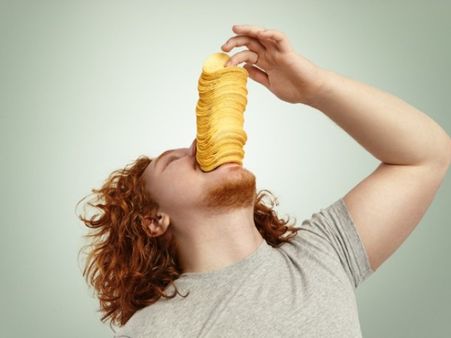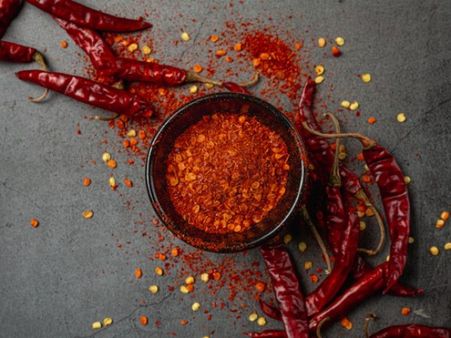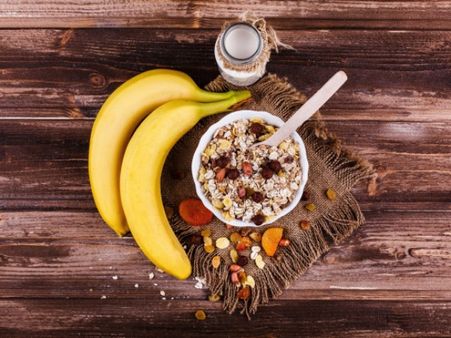Just In
- 5 hrs ago

- 8 hrs ago

- 12 hrs ago

- 15 hrs ago

Don't Miss
- Sports
 UFC 302: Makhachev vs. Poirier Date, Card, Broadcast & Ticket Details
UFC 302: Makhachev vs. Poirier Date, Card, Broadcast & Ticket Details - Movies
 Salman Khan Is All Set To Start The Shooting For His Upcoming Movie 'Sikandar', All The Details We Know So Far
Salman Khan Is All Set To Start The Shooting For His Upcoming Movie 'Sikandar', All The Details We Know So Far - Finance
 Wipro Q4 Results Preview: Weak Demand Likely To Drag Revenue Sequentially, EBIT Margins Seen Stable
Wipro Q4 Results Preview: Weak Demand Likely To Drag Revenue Sequentially, EBIT Margins Seen Stable - News
 BRS Chief K Chandrasekhar Rao Slams BJP, Says K Kavitha's Arrest Is Vendetta Politics
BRS Chief K Chandrasekhar Rao Slams BJP, Says K Kavitha's Arrest Is Vendetta Politics - Automobiles
 Aprilia RS 457 Accessories: A Detailed Look At The Prices
Aprilia RS 457 Accessories: A Detailed Look At The Prices - Education
 Karnataka SSLC Result 2024 Soon, Know How to Check Through Website, SMS and Digilocker
Karnataka SSLC Result 2024 Soon, Know How to Check Through Website, SMS and Digilocker - Technology
 Nothing Ear, Ear a With ANC, Up to 42.5 Hours of Battery Launched; Check Price and Availability
Nothing Ear, Ear a With ANC, Up to 42.5 Hours of Battery Launched; Check Price and Availability - Travel
Telangana's Waterfall: A Serene Escape Into Nature's Marvels
Do You Pee Frequently? Then You Need To Avoid These Foods!
Are you one of those who always run to the loo at the very sight of it? Are you one of those who cannot hold on to your urine for a long time? Then this article is for you.
It is very normal for a person to pee eight times in a day if you are drinking enough water. It is also very normal to get up at night and pee once. However, if it exceeds this limit, then you should take note of it because you may have an overactive bladder (OAB).

OAB is more common in older adults; however, it can occur at any age [1]. Overactive bladder occurs when the muscles of your bladder contract suddenly, without any warning sign. An overactive bladder can cause you to have a frequent, intense need to urinate because the bladder muscles are contracting, even if your bladder is not full [2].

Eating Habits And Overactive Bladder
Studies point out that your diet plays a key role in this; that is, certain foods you eat can add more stress to your bladder and increase irritation [3]. Diet can help play a supportive role in helping with symptoms of overactive bladder such as frequent urge to urinate, frequent urination, bladder spasms and urinary incontinence [4].
While there is no special diet for an overactive bladder, by avoiding and limiting certain foods can help manage the condition. Take a look at the foods you should eat and food you should avoid for an overactive bladder.

Foods To Avoid For An Overactive Bladder
Some people find that certain foods or beverages seem to make their OAB symptoms worse.
1. Chocolate: The caffeine content in chocolates can trigger the need to go the loo frequently. This is because caffeine is a diuretic which means that it increases the frequency of urination [5]. Eating chocolate can also increase the urge to urinate if consumed in excessive amounts because it is said to have a direct effect on the bladder's smooth muscle [6].
What to do: Try white chocolate, which usually does not have caffeine.
2. Tea and coffee: Same as that of chocolates, these beverages have high caffeine content, when consumed, can increase bladder activity and result in worsening the symptoms of OAB, such as higher urgency and frequency of urination and increased incontinence [7][8].
What to do: You can reduce or gradually give up tea and coffee and switch to decaffeinated beverages to decrease symptoms.

3. Citrus fruits: Oranges, limes, and lemons can quickly worsen the symptoms of OAB. Citrus fruits as such contain high amounts of citric acid, which can worsen bladder control [9]. It would be best if you also avoided cranberries and grapefruit to prevent urinary tract irritation.
What to do: You should NEVER skip having fruits. A healthy diet is one that is encompassed of fruits, so for an individual with OAB, the best way is to have less acidic fruits like blueberries, bananas, apples and pears [10].
4. Tomato products: Studies point out that as tomatoes are rich in acidic acid, they can irritate your bladder and worsen OAB symptoms [11]. Extremely sensitive individuals (OAB) should altogether avoid tomato products such as pasta, pizza sauce, ketchup andsalsa.
5. Onions: Raw onions can cause bladder problems and increase the urge to urinate [12]. It is not common to everyone with OAB; however, there have been reports of onion aggravating OAB symptoms.
What to do: Try cooking them before you eat them to reduce the effect on your bladder.

...
6. Soda: Any carbonated drinks, such as soft drinks, soda water and energy drinks, can aggravate OAB symptoms. It is the ‘fizz' in these fizzy drinks that can make you run to the loo a little bit too much.
What to do: Skipping on carbonated drinks can not only ease the OAB symptoms but also improve your health. Drinks with both carbonation and caffeine can stimulate the bladder and increase the risk of certain health problems. Switch to water and fruit juices.
7. Alcohol: Any alcoholic beverages like beer, wine, champagne and liquor can irritate the bladder and disrupt the signals to your brain which indicates when there is bladder overflow [13], causing you to pass urine.
8. Sweeteners: Not only artificial sweeteners but natural sweeteners like gave nectar, brown rice syrup, date sugar, honey, maple syrup etc. can also increase OAB symptoms [14]. Avoid artificial sweeteners such as aspartame and saccharin entirely from your diet.
9. Spicy foods: Spicy foods such as peppers, wasabi, spicy salads and sauces can aggravate your bladder problem [15]. Not all spicy foods can worsen the symptoms of OAB; therefore, experiment to see which ones affect you and which ones do not.
10. Salty foods: Potato chips, salted nuts, and other salty foods can worsen the symptoms of OAB because these foods when consumed, retain water, which eventually goes to the bladder [16]. This can make one constantly thirsty, prompting you to drink more water.
What to do: Switch to low- or no-salt snacks that are easily available in supermarkets or make some at home.
11. Processed foods: Processed foods such as breakfast cereals, cheese, tinned vegetables, bread etc. contain a lot of artificial ingredients which can irritate your bladder and worsen OAB symptoms [17].
What to do: For an individual with OAB, doctors suggest it is best to have a healthy, balanced diet should include natural and fresh foods, such as vegetables and whole grains.
Try cutting down these foods in your diet and see if eliminating these foods have helped reduce your constant urge to go to the loo all the time.

Foods To Eat For Overactive Bladder
While some foods can trigger and worsen the symptoms of OAB, the following foods can help manage the condition.
•
Bananas,
rich
in
potassium
and
loaded
with
fibre,
this
fruit
is
good
for
your
urinary
tract
[18].
•
Cashews,
almonds
and
peanuts
are
good
additions
to
your
diet
when
dealing
with
an
overactive
bladder
[19].
•
Rich
in
antioxidants,
fibre
and
vitamin
K,
cucumber
is
a
good
choice
for
people
dealing
with
an
overactive
bladder
[20].
Note: Eating these foods will not cure or manage OAB, but they can help reduce the frequency of urine production.

On A Final Note…
Remember that foods that negatively affect one person may not affect you. Keeping a food diary where you list down the foods you eat can help you understand the triggers and can avoid or reduce the consumption of the same food in the future. If the urinary problem elevates, talk to your doctor about it because, the sooner you recognize a problem, the earlier it can be treated and managed.
-
 healthFemale Genital Health: Does It Hurt In Your Intimate Area When Peeing? Signs Of Infection
healthFemale Genital Health: Does It Hurt In Your Intimate Area When Peeing? Signs Of Infection -
 healthWhat Is The Colour Of Your Pee? Know Which Urine Colour Is Normal Or Abnormal, When To See A Doctor
healthWhat Is The Colour Of Your Pee? Know Which Urine Colour Is Normal Or Abnormal, When To See A Doctor -
 wellnessCan Ants Detect Cancer In Urine? How?
wellnessCan Ants Detect Cancer In Urine? How? -
 wellnessWhy Is It Important To Urinate After Intercourse? How Soon Should You Urinate?
wellnessWhy Is It Important To Urinate After Intercourse? How Soon Should You Urinate? -
 wellnessBacteria In Urine May Signal Aggressive Prostate Cancer: Study
wellnessBacteria In Urine May Signal Aggressive Prostate Cancer: Study -
 wellness11 Benefits Of Cow Urine: A Study Based Approach
wellness11 Benefits Of Cow Urine: A Study Based Approach -
 wellnessIs It Safe To Drink Urine?
wellnessIs It Safe To Drink Urine? -
 disorders cureKidney Stones: Symptoms, Causes, Diagnosis, Treatment And Prevention
disorders cureKidney Stones: Symptoms, Causes, Diagnosis, Treatment And Prevention -
 disorders cureCloudy Urine: Causes, Diagnosis And Treatment
disorders cureCloudy Urine: Causes, Diagnosis And Treatment -
 kidsHome Remedies For Bed-wetting In Children
kidsHome Remedies For Bed-wetting In Children -
 disorders cureWorld Kidney Day: Everything You Need To Know About Renal Replacement Therapy
disorders cureWorld Kidney Day: Everything You Need To Know About Renal Replacement Therapy -
 wellness7 Silent Signs Of Kidney Infection You Should Never Ignore!
wellness7 Silent Signs Of Kidney Infection You Should Never Ignore!


 Click it and Unblock the Notifications
Click it and Unblock the Notifications



